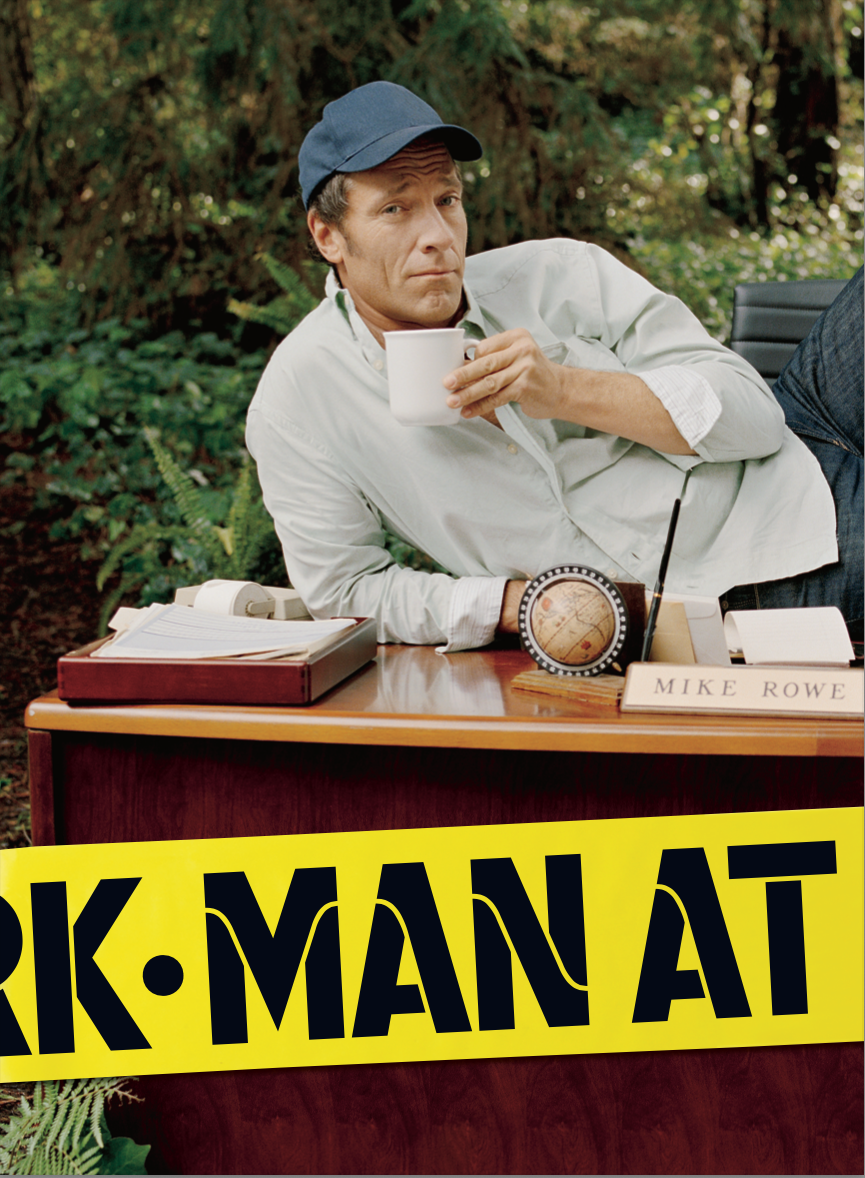Mike Rowe
Feature profile of "Dirty Jobs" host Mike Rowe. Did you know he started out as a professional opera singer?

Mike Rowe’s got a mug. It’s a loose but functioning alliance of deep crags, laugh lines, strong jaw, and cleft chin. The same face that sold Ted Danson as an ex–Red Sox pitcher on Cheers—a jockish parody of handsome.
He’s not exactly tall, maybe five-eleven, but he’s broad, meaty—a frame to match that oaky baritone he honed in the opera. Since I know him only as the grime covered host of Dirty Jobs, I found it jarring to learn that Rowe once worked as a professional opera singer. But when I meet him face-to-mug on a warm afternoon at Grumpy’s, the San Francisco bar where he first conceived his show, I get it. The guy’s got presence that can reach the cheap seats.
That approachable swagger is one big reason Dirty Jobs, now entering its fifth season, has become an institution on the Discovery Channel, where, thanks to repeats of repeats, it aired some 800 times last year. Each episode—he just wrapped his 200th—begins with a montage of Rowe awash in stink: garbage, grease, sewage, solvents. After set- ting the scene for the new gig, he interviews the plant manager/goat castrator/boiler cleaner, then jumps enthusiastically into the muck to try the work for himself. Sometimes he succeeds; other times he fails. If he or his cameramen vomit or make a fart joke along the way, all the better.
OK, it’s not surprising that a charismatic dude telling locker-room jokes works on TV. Here’s what is, though: Dirty Jobs has become more than a basic-cable hit—it is, in fact, a movement to redefine the concept of work in this country, with Rowe as spokesman and organizing force. With millions laid off and millions more panicking that they might be next, we’re looking for honest answers about where we go from here. Rowe has one: Roll up your sleeves and get dirty. He frequently talks to colleges, unions, and military panels about employment in the trades. Last fall, The Wall Street Journal called for his take on why un- employment is rising while the trades can’t find enough workers.
“How can those two things exist in the same space?” he says, sipping a pint of Guinness while wearing jeans, a gray work shirt, and a hat that reads POO PAYS. “How is it that people don’t want work that pays $50 an hour and keeps them happy all day long?”
Understand: Rowe, 47, is a natural clown and schemer who spent almost 20 years of his adult life avoiding any work that would tie him down for more than six months. “I Forrest Gump’d my way through most of my career” is how he describes it. That people started taking him seriously—life-advice seriously—caught him completely off guard. “Jay Leno introduced me as a ‘hero to the working class,’” he says, describing an appearance on The Tonight Show last year. “I nearly fell over backstage. I thought, My God, if that’s what’s going on, the hero standard has fallen precipitously in that category.”
More recently, a social anthropologist called Rowe to suggest that Dirty Jobs is becoming an important oral history. “He says, ‘You have 200 experiences with the exact people that Hillary Clinton was trying to connect with as those drops of rye dribbled down her chin in Ohio,’” Rowe recalls. “‘You’re not of them, and yet they’ve wrapped you up and pointed to you.’”
So now something truly unexpected is happening to Mike Rowe: He’s taking him- self seriously.
Well, sometimes...
